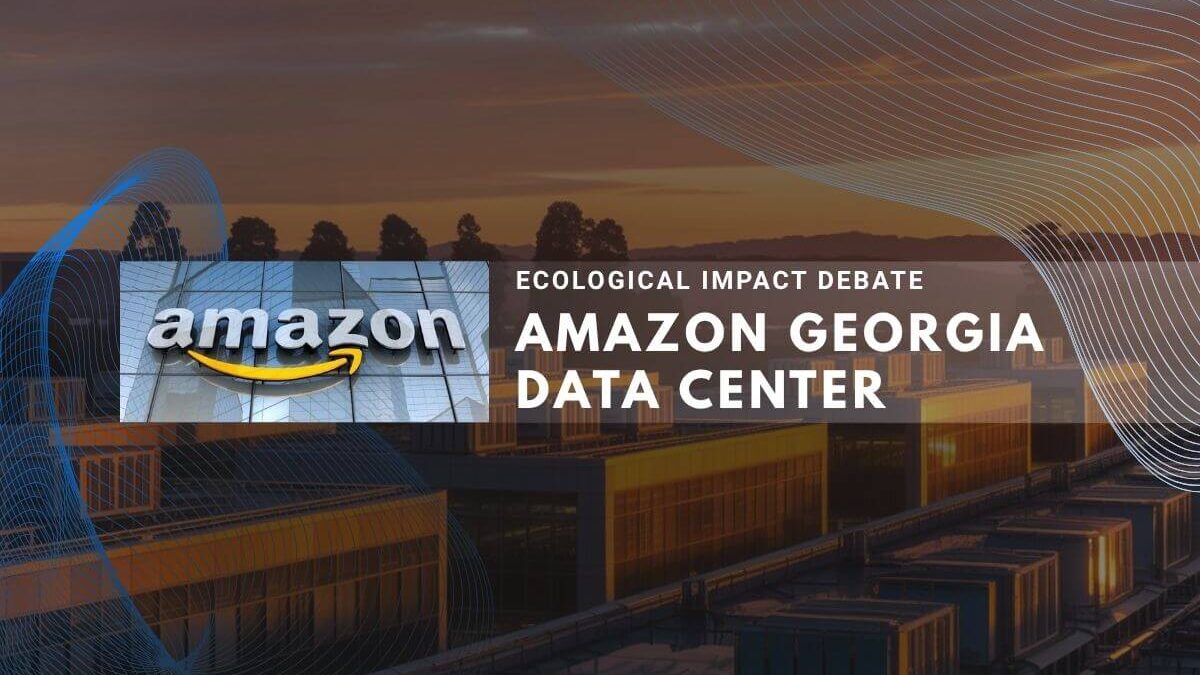Amazon Data Services purchased 984.89 acres in Lamar County, Georgia, for $270 million to develop a data center, prompting local residents to organize opposition over concerns about environmental impact, water consumption, and ecosystem disruption [1][2][3]. The land, acquired from High Falls 75 LLC on July 25, 2025, sits along Interstate 75 near Exit 198 and was pre-zoned for industrial use following public hearings earlier in 2025 [4][5].
Local advocate Makalyn McGuire is leading community resistance through public forums, citing health issues documented in other communities near data center facilities [1][2]. Data centers consume substantial energy and water resources, with facilities using between 300,000 to 5 million gallons of water daily, forcing some utilities to delay fossil fuel plant retirements or construct new gas-powered facilities to meet demand [6][7][8].
Amazon Confirms Data Center Plans Following Land Purchase
Amazon spokesperson Simone Griffin confirmed in August 2025 that the company is “performing due diligence in exploring data center locations” on the Lamar County property [3]. The 984.89-acre tract was purchased from Legacy 75 Trade Center developers for approximately $274,111 per acre, representing the largest real estate transaction in Lamar County history [4][5]. The site includes access to heavy electrical transmission lines necessary for data center operations [3].
Property Restrictions and Zoning Requirements
Restrictive covenants established during earlier rezoning limit individual buildings to a maximum of 125,000 square feet, with additional protections for land near High Falls Lake [3][5]. Lamar County Commission Chairman Ryran Traylor stated that Amazon must present detailed development plans during pre-construction meetings with county officials [4].
Local Opposition and Environmental Concerns
Barnesville resident Makalyn McGuire expressed concerns about long-term consequences, asking “Who is here left to deal with the consequences of what they have built?” when corporations eventually leave [1][2]. She specifically cited potential impacts on wildlife at nearby High Falls State Park and concerns about pollution affecting the local ecosystem [2]. Chairman Traylor acknowledged community concerns, stating the county is “committed to ensuring that this new project brings the minimal possible disruption to neighboring areas” [4].
Similar data center projects have faced organized resistance in other communities, including Memphis neighborhoods where residents report health issues linked to nearby facilities [1]. The opposition reflects growing tensions between corporate infrastructure expansion and community welfare considerations [1][2].
Data Center Environmental Impact
Data centers present substantial environmental challenges that concern Lamar County residents:
- Water consumption ranging from 300,000 gallons daily for smaller facilities to 5 million gallons per day for large operations [6]
- Annual electricity use of 130 terawatt-hours across all U.S. data centers in 2022, equivalent to powering 12 million homes [6]
- Projected tripling of energy demand by 2030 as AI applications expand [6][7]
- At least 17 fossil fuel power plants nationwide delaying retirement to serve data center demand [8]
- New gas-powered plant construction, with utilities like Dominion Energy planning $4.5 billion facilities [6][8]
- Residential customers paying disproportionate infrastructure costs compared to commercial data center clients [6]
Amazon Web Services announced plans in June 2025 to expand recycled water use to 120 U.S. data center locations by 2030, targeting conservation of 530 million gallons of drinking water annually [9][10]. The company currently uses recycled water at 24 global sites, with expansion planned for Georgia, Mississippi, Virginia, and California [9][10].
McGuire encouraged residents to “look for those public hearings, the commissioner’s public hearings, and come out, support” to protect local environmental resources [2]. The Lamar County project remains in pre-development stages, with formal construction plans pending county review [4][5].
